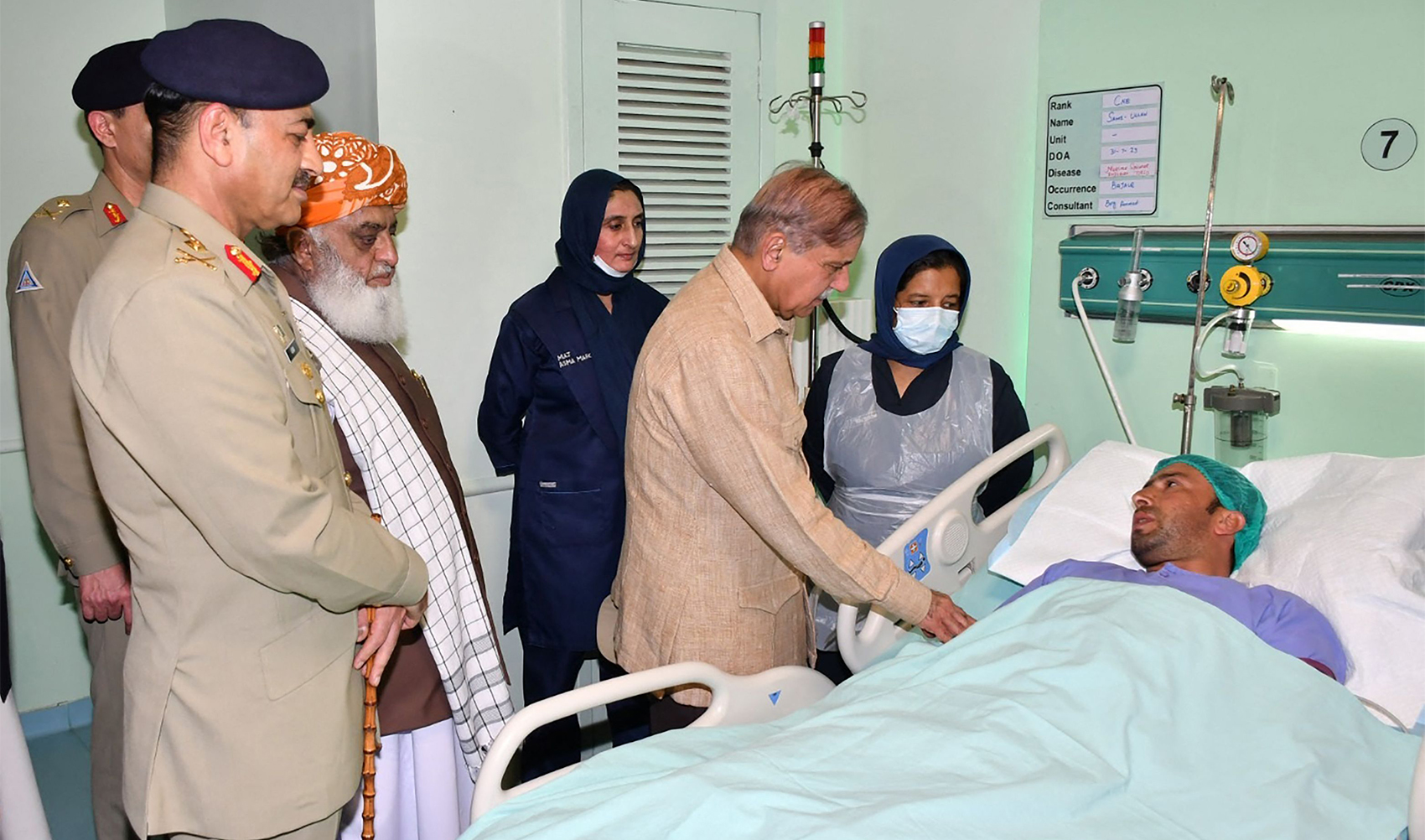ISLAMABAD: Militants behind a spate of suicide attacks in Pakistan were being helped by “Afghan citizens” across the border, Prime Minister Shehbaz Sharif has said, days after a deadly bombing at a political gathering near the countries’ shared frontier.
Sharif stopped short of accusing Afghanistan’s Taliban government of knowingly allowing attacks from its soil, but he did say Pakistan militants were operating from “sanctuaries” in the neighboring country.
Islamabad has previously said fighters from the Pakistan Taliban were operating freely from Afghanistan — a charge Kabul routinely denies.
Sharif’s remarks late Tuesday followed a security briefing and a visit to victims of Sunday’s blast, which killed 54 people and wounded dozens more at a gathering of Jamiat Ulema-e-Islam-F (JUI-F) political party workers in Khar.
The attack was claimed by the Pakistan chapter of the Daesh group, who have a bloody rivalry with the Taliban.
“The Prime Minister noted with concern the involvement of the Afghan citizens in the suicide blasts,” a statement from Sharif’s office said.

This handout picture taken on August 1, 2023, shows Pakistan's Prime Minister Shehbaz Sharif (3R) meeting a blast victim along with Pakistan's army Chief General Syed Asim Munir (2L) at a military hospital in Peshawar. (PID/AFP)
It noted there was “liberty of action available to the elements hostile to Pakistan in planning and executing such cowardly attacks on innocent civilians from the sanctuaries across the border.”
Since the Taliban surged back to power in Afghanistan two years ago, Pakistan has witnessed a dramatic uptick in militant attacks focused on its western border regions.
Taliban authorities have consistently pledged not to let Afghan territory be used by foreign militants to stage attacks — a key part of the accord that saw US-led forces leave after a 20-year occupation.
Afghan government spokesman Zabihullah Mujahid told AFP on Wednesday that the Khar attack was a “criminal act.”
“Such incidents should be prevented where they are happening and being coordinated,” he said.
“The Islamic Emirate of Afghanistan is very serious about preventing its soil from being used against anyone, and we won’t allow anyone to create a sanctuary here.”
A UN Security Council report in May said Afghanistan’s Taliban did not consider the Pakistan Taliban a domestic threat, “but rather as part of the emirate,” adding that the group had a “safe operating base” there.
In January, investigators blamed a mosque blast that killed more than 80 police officers on a splinter group of the Pakistan Taliban.
The Daesh group named, but did not give the nationality of the suicide bomber it said carried out Sunday’s attack. Pakistan police have not confirmed any details of the bomber.
But investigators said a Daesh bombing that killed 64 people at a Shiite mosque in northwest Pakistan last year was carried out by an Afghan exile who had returned home to prepare for the attack. Sharif’s office said the “interim Afghan government should undertake concrete measures toward denying its soil to be used for transnational terrorism.”
















